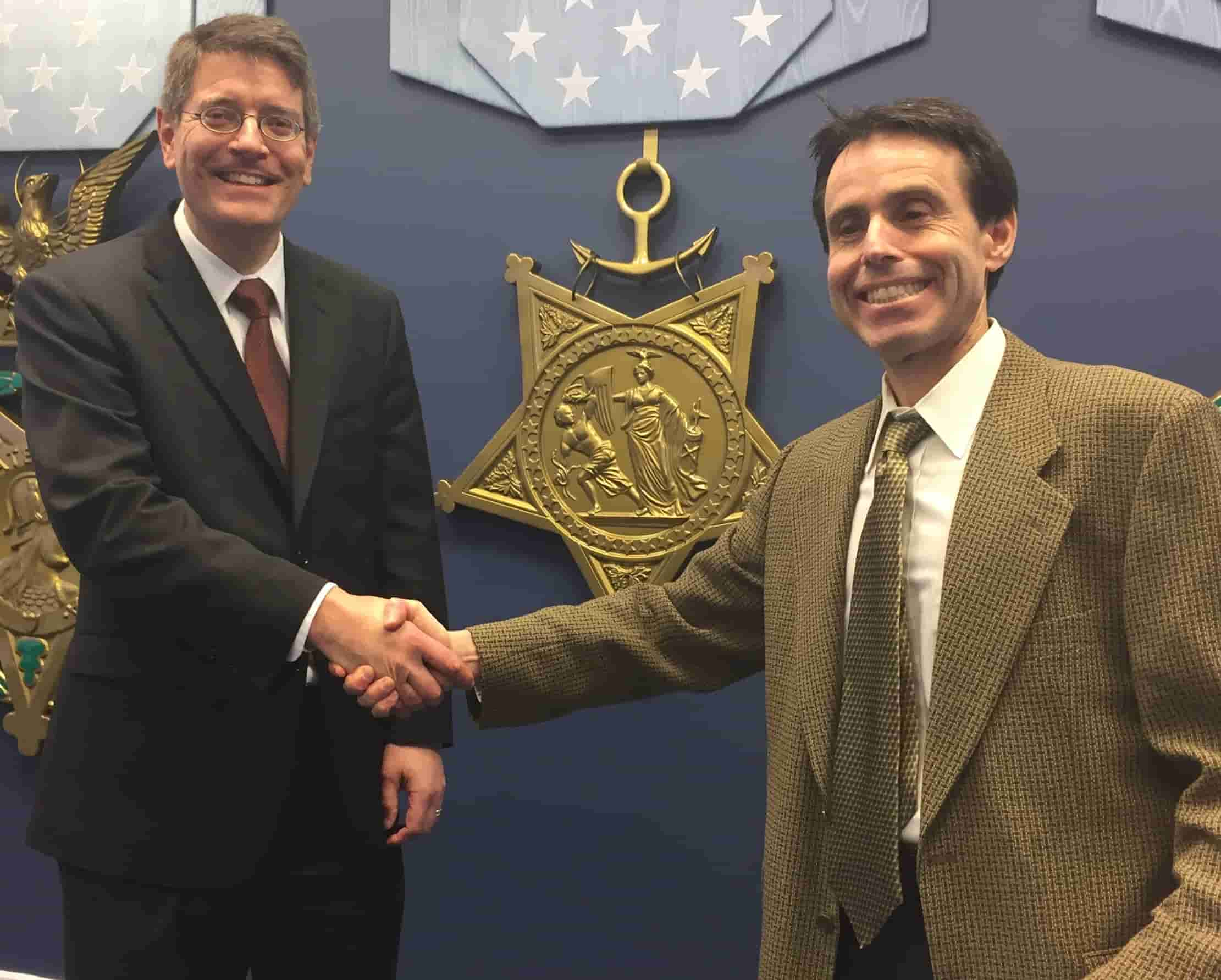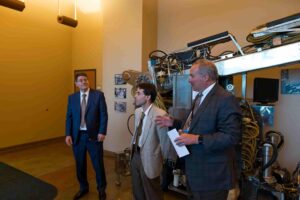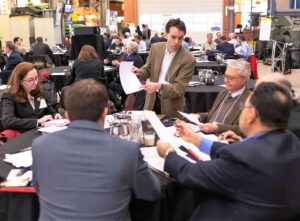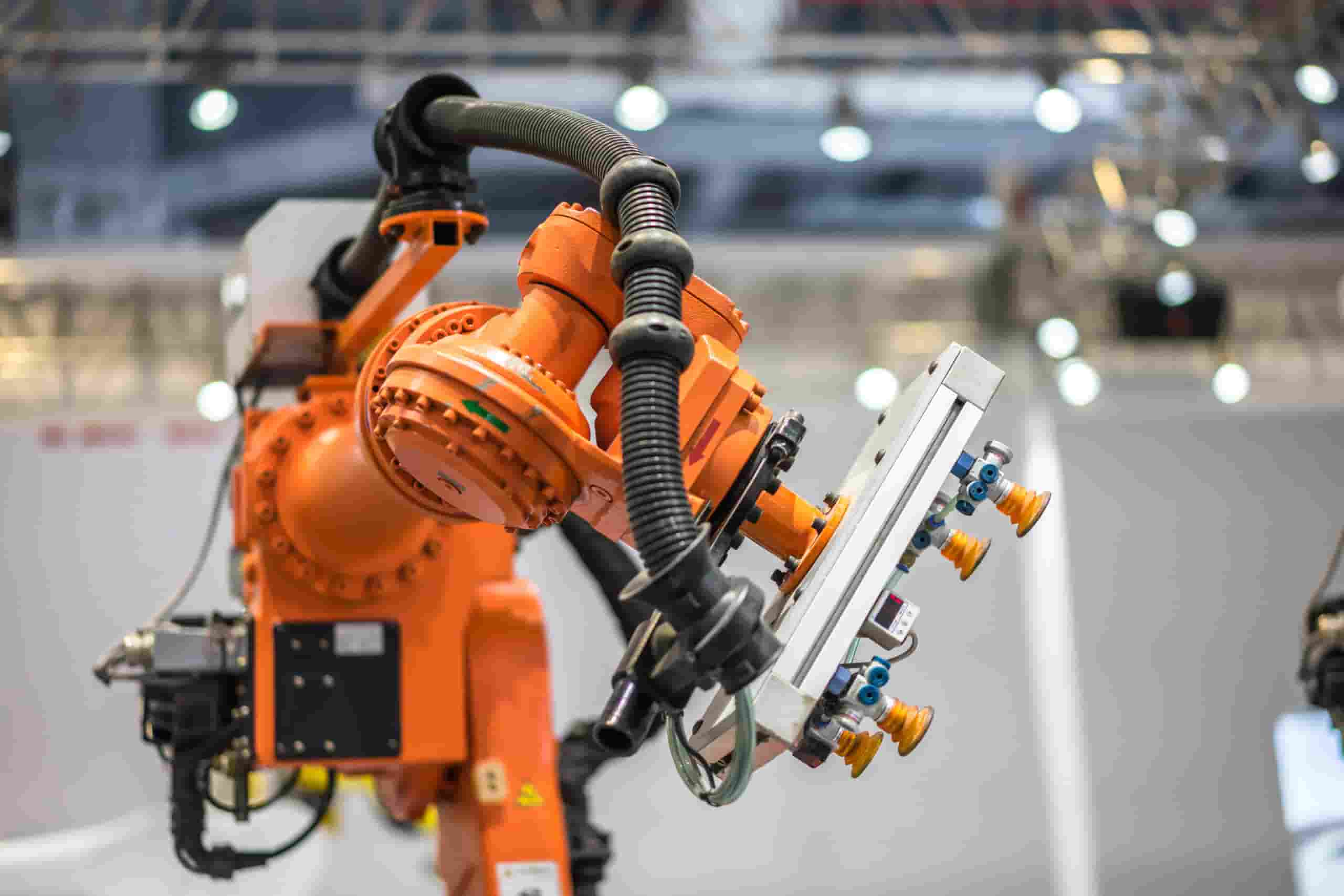
Ahead of the fourth anniversary of ARM’s inception, we spoke to ARM Institute co-founders, Dr. Gary Fedder and Dr. Howie Choset about how and why the Department of Defense selected Carnegie Mellon University and Pittsburgh to win the award to create ARM, some of their favorite ARM memories, and how they see ARM advancing the robotics and workforce development industries. Both Dr. Fedder and Dr. Choset are still involved with ARM with Dr. Fedder sitting on our Board of Directors and Dr. Choset leading an ARM project.
1. Why did Carnegie Mellon University decide to respond to the RFP from the Federal Government to form a national institute focused on robotics?
 We were convinced that the national Manufacturing USA institute offered an opportunity for our nation, region, and University to both start new manufacturing efforts as well as reclaim our manufacturing base. This opportunity was uniquely matched with our core capabilities at Pittsburgh. Emanating from Carnegie Mellon and the University of Pittsburgh, we have world-class artificial intelligence and robotics – Robotics Institute – as well as other manufacturing efforts in additive manufacturing, cyber-security, and policy, along with an active ecosystem of start-ups and large corporations advancing the state-of-the-art in robotics and artificial intelligence. We at Carnegie Mellon started preparations in December 2015, upon the very first hint that the government possibly wanted to create a robotics-themed manufacturing institute.
We were convinced that the national Manufacturing USA institute offered an opportunity for our nation, region, and University to both start new manufacturing efforts as well as reclaim our manufacturing base. This opportunity was uniquely matched with our core capabilities at Pittsburgh. Emanating from Carnegie Mellon and the University of Pittsburgh, we have world-class artificial intelligence and robotics – Robotics Institute – as well as other manufacturing efforts in additive manufacturing, cyber-security, and policy, along with an active ecosystem of start-ups and large corporations advancing the state-of-the-art in robotics and artificial intelligence. We at Carnegie Mellon started preparations in December 2015, upon the very first hint that the government possibly wanted to create a robotics-themed manufacturing institute.
2. Why do you believe CMU and Pittsburgh were selected for what became the ARM Institute?
Our proposed vision for manufacturing robotics and our institute model, with its strong consortium with 241 letters of support, best fit the vision of the government to meet the mission to accelerate innovation and bridge the gap to product development for adoption of robots in manufacturing environments. While the strength of CMU’s robotics, artificial intelligence and manufacturing expertise and Pittsburgh’s startups and companies in these areas was an important component, it was the bench strength of the entire consortium coupled with a member-driven governance model that tipped the scales to ARM’s favor.
3. ARM will be celebrating the 4th anniversary of its inception in a few months. What are you the most proud of relative to your contributions to the organization?
 The vision and guidance from our original proposal continues to be a guiding compass for ARM’s mission. We kick-started from ground zero one of the most successful institutes in terms of value proposition to its members, putting in place a robust governance structure and maintaining a great partnership with our DoD sponsors. ARM and CMU have also moved into a wonderful new facility at Mill 19 that will integrate research in advanced manufacturing for further member benefit.
The vision and guidance from our original proposal continues to be a guiding compass for ARM’s mission. We kick-started from ground zero one of the most successful institutes in terms of value proposition to its members, putting in place a robust governance structure and maintaining a great partnership with our DoD sponsors. ARM and CMU have also moved into a wonderful new facility at Mill 19 that will integrate research in advanced manufacturing for further member benefit.
4. What impact do you believe ARM will have moving into its 5th year?
ARM is moving into a new phase with Ira Moskowitz as the new CEO. The growing number of ongoing and emerging opportunities for research projects translates into more impact for the members. ARM is working with the DoD on enhanced attention to AI and autonomy for robots in manufacturing, so we should see more activity on those specific themes. And the planned rollout of the Asset Management System (RoboticsCareer.org) will certainly have a positive impact in connecting people to robotics career pathways in manufacturing.
5. Can you share one moment working with ARM that you really enjoyed?
Gary: With two years serving as CEO and as a board member, I’ve experienced many memorable moments with our members, the staff and the government leadership. One of many memorable moments was the very first annual meeting, where our members all came together to network and learn the details of the newly formed robotics institute. We’ve come a long way since then!

Howie: My most memorable experience is really one of many working with the members, especially the TAC, government partners, and ARM Deputy CTO, on brainstorming and advancing core concepts in robotics and manufacturing. One that stands out was a member meeting at Clemson where industry, government and academia moved forward on our project call. There was a level of excitement and electricity among us that knew we could change the future for the United States.
ABOUT ARM
The Advanced Robotics for Manufacturing (ARM) Institute is the nation’s leading collaborative in robotics and workforce innovation. Structured as a public-private partnership, ARM and its member organizations catalyze transformative robotic technologies and education for both industrial base and warfighter needs to grow U.S. manufacturing competitiveness and resilience. Founded in 2017 in Pittsburgh, PA by Carnegie Mellon University and operating as an independent non-profit funded by the Department of Defense, ARM is part of the DoD Manufacturing USA® network.
